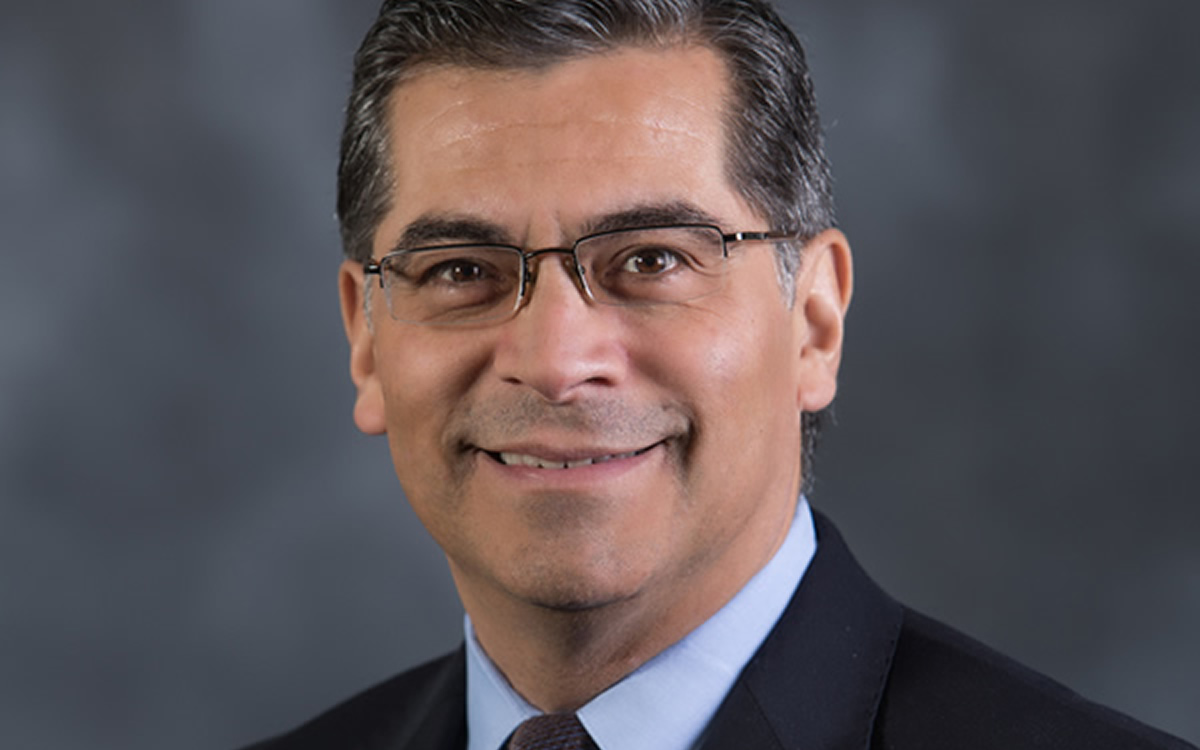National
Gay Alabama widower: State saw relationship as ‘nothing’
Paul Hard’s husband died in 2011 car accident


David Fancher (on left) and Paul Hard at their wedding. (Photo courtesy of the Southern Poverty Law Center)
Hard, 55, accepted Fancher’s proposal six years later – and they exchanged vows on a Massachusetts beach on May 20, 2011. Fancher, 53, died less than three months later when his car crashed into a UPS truck that had overturned on an Alabama interstate.
Hard filed a wrongful death lawsuit, but he would not be able to receive the majority of any settlement money because the state does not recognize him as a surviving spouse.
“At every turn and every juncture, particularly following his death, I was treated as though this relationship was nothing,” Hard told the Washington Blade on Thursday after the Southern Poverty Law Center filed a federal lawsuit challenging Alabama’s gay nuptials ban that prohibits the state from recognizing same-sex marriages legally performed in other jurisdictions.
Alabama voters in 2006 by an 81-19 vote margin approved a state constitutional amendment that defines marriage as between a man and a woman. Out state Rep. Patricia Todd (D-Birmingham), who married her long-time partner in Massachusetts in 2013, last November introduced a bill that sought to repeal the state’s gay nuptials ban.
Hard said hospital personnel initially refused to allow him to see his husband, even though he had he brought the couple’s marriage license and other legal documents with him. An attendant roughly half an hour later told Hard that Fancher had died.
The director of the funeral home that buried Fancher said on his death certificate that he was “never married” and did not have a surviving spouse. Hard said the funeral home director refused to change the information on the document.
“I was seen to have been fully enough his husband to pay the bills and wrap-up his estate, but the state of Alabama refuses to acknowledges his relationship,” Hard told the Blade.
He added “no one deserves to through what I had to go through” after Fancher’s death.
“No one should have to suffer indignity at the hands of the state at the worst extremity of human existence when you lose someone,” said Hard. “No one would ever suggest to a widow and their church or their community organization that they should not pursue their rights as a widow. And I’m no different than anybody like that.”
Hard, who grew up as a Southern Baptist as his late husband did, told the Blade his family is overall supportive of his decision to seek recognition of his marriage in Alabama.
“Some of them don’t support gay marriage, but they have looked at me and simply said David has the right to leave to whomever he chose his estate,” he said.
Sam Wolfe, senior staff attorney for the Southern Poverty Law Center, said as he and Hard spoke to the Blade it was time to file the lawsuit in the wake of last June’s landmark U.S. Supreme Court decision that found a portion of the Defense of Marriage Act unconstitutional and other recent rulings.
“Alabamians can’t wait forever and there is a bit of a wave going on in the country both on the topic of marriage and other issues relating to equality and basic dignity for LGBT people,” said Wolfe. “There are real families here like Paul and his family that are affected negatively, that are harmed by this law. We have the legal arguments at our disposal and we’re taking it to federal court to knock down this law.”
The Southern Poverty Law Center filed its lawsuit one day after a federal judge ruled Kentucky must recognize same-sex marriages legally performed in other states.
The American Civil Liberties Union and the ACLU of Missouri on Wednesday filed a lawsuit in state court on behalf of eight same-sex couples who are seeking recognition of their out-of-state marriages. The Forum for Equality Louisiana on the same day filed a federal lawsuit on behalf of four gay and lesbian couples who legally exchanged vows outside the Pelican State.
A judge last month ruled Oklahoma’s gay marriage ban is unconstitutional. The U.S. Supreme Court less than two weeks earlier blocked any future same-sex marriages from taking place in Utah pending the outcome of an appeal of U.S. District Court Judge Robert Shelby’s ruling late last year that struck down the state’s gay nuptials ban.
Nevada Attorney General Catherine Cortez Masto earlier this week announced she will no longer defend her state’s same-sex marriage ban in court.
Same-sex couples in Florida, Virginia, Pennsylvania and other states have filed marriage lawsuits since the U.S. Supreme Court’s DOMA ruling. A measure that would ban same-sex marriage in the Hoosier State will not go before voters this year after the Indiana Senate adjourned on Thursday without considering any amendments on the proposal.
Attorney General Eric Holder’s Feb. 10 announcement that the Justice Department will now recognize same-sex marriages in civil and criminal cases and extend full benefits to gay spouses of police officers and other public safety personnel applies to Alabama and the 31 other states that have yet to extend marriage rights to gays and lesbians. U.S. Sen. Ted Cruz (R-Texas) on Thursday introduced a bill that would ban the federal government from recognizing same-sex marriages in states that ban gay nuptials.
Alabama Gov. Robert Bentley and Attorney General Luther Strange are among those named as defendants in the Southern Poverty Law Center’s lawsuit.
Bentley’s spokesperson, Jennifer Ardis, told the Associated Press on Thursday the governor believes in the “traditional definition of marriage as between a man and a woman.” Ardis said Bentley would defend the state’s gay nuptials ban in court.
Wolfe told the Blade there have been “a lot” of positive reactions to the lawsuit. He said local officials have also said they plan to fight it “to the bitter end.”
Federal Government
HHS reverses Trump-era anti-LGBTQ rule
Section 1557 of the Affordable Care Act now protects LGBTQ people

The U.S. Department of Health and Human Services Office for Civil Rights has issued a final rule on Friday under Section 1557 of the Affordable Care Act advancing protections against discrimination in health care prohibiting discrimination on the basis of race, color, national origin, age, disability, or sex (including pregnancy, sexual orientation, gender identity, and sex characteristics), in covered health programs or activities.
The updated rule does not force medical professionals to provide certain types of health care, but rather ensures nondiscrimination protections so that providers cannot turn away patients based on individual characteristics such as being lesbian, gay, bisexual, transgender, queer, intersex, or pregnant.
“This rule ensures that people nationwide can access health care free from discrimination,” said HHS Secretary Xavier Becerra. “Standing with communities in need is critical, particularly given increased attacks on women, trans youth, and health care providers. Health care should be a right not dependent on looks, location, love, language, or the type of care someone needs.”
The new rule restores and clarifies important regulatory protections for LGBTQ people and other vulnerable populations under Section 1557, also known as the health care nondiscrimination law, that were previously rescinded by the Trump administration.
“Healthcare is a fundamental human right. The rule released today restores critical regulatory nondiscrimination protections for those who need them most and ensures a legally proper reading of the Affordable Care Act’s healthcare nondiscrimination law,” said Omar Gonzalez-Pagan, counsel and health care strategist for Lambda Legal.
“The Biden administration today reversed the harmful, discriminatory, and unlawful effort by the previous administration to eliminate critical regulatory protections for LGBTQ+ people and other vulnerable populations, such as people with limited English proficiency, by carving them out from the rule and limiting the scope of entities to which the rule applied,” Gonzalez-Pagan added. “The rule released today has reinstated many of these important protections, as well as clarifying the broad, intended scope of the rule to cover all health programs and activities and health insurers receiving federal funds. While we evaluate the new rule in detail, it is important to highlight that this rule will help members of the LGBTQ+ community — especially transgender people, non-English speakers, immigrants, people of color, and people living with disabilities — to access the care they need and deserve, saving lives and making sure healthcare professionals serve patients with essential care no matter who they are.”
In addition to rescinding critical regulatory protections for LGBTQ people, the Trump administration’s rule also limited the remedies available to people who face health disparities, limited access to health care for people with Limited English Proficiency, and dramatically reduced the number of healthcare entities and health plans subject to the rule.
Lambda Legal, along with a broad coalition of LGBTQ advocacy groups, filed a lawsuit challenging the Trump administration rule, Whitman-Walker Clinic v. HHS, and secured a preliminary injunction preventing key aspects of the Trump rule from taking effect.
These included the elimination of regulatory protections for LGBTQ people and the unlawful expansion of religious exemptions, which the new rule corrects. The preliminary injunction in Whitman-Walker Clinic v. HHS remains in place. Any next steps in the case will be determined at a later time, after a fulsome review of the new rule.
GLAAD President Sarah Kate Ellis released the following statement in response to the news:
“The Biden administration’s updates to rules regarding Section 1557 of the ACA will ensure that no one who is LGBTQI or pregnant can face discrimination in accessing essential health care. This reversal of Trump-era discriminatory rules that sought to single out Americans based on who they are and make it difficult or impossible for them to access necessary medical care will have a direct, positive impact on the day to day lives of millions of people. Today’s move marks the 334th action from the Biden-Harris White House in support of LGBTQ people. Health care is a human right that should be accessible to all Americans equally without unfair and discriminatory restrictions. LGBTQ Americans are grateful for this step forward to combat discrimination in health care so no one is barred from lifesaving treatment.”
The White House
Four states to ignore new Title IX rules protecting transgender students
Biden administration last Friday released final regulations

BY ERIN REED | Last Friday, the Biden administration released its final Title IX rules, which include protections for LGBTQ students by clarifying that Title IX forbids discrimination based on sexual orientation and gender identity.
The rule change could have a significant impact as it would supersede bathroom bans and other discriminatory policies that have become increasingly common in Republican states within the U.S.
As of Thursday morning, however, officials in at least four states — Oklahoma, Louisiana, Florida, and South Carolina — have directed schools to ignore the regulations, potentially setting up a federal showdown that may ultimately end up in a protracted court battle in the lead-up to the 2024 elections.
Louisiana State Superintendent of Education Cade Brumley was the first to respond, decrying the fact that the new Title IX regulations could block teachers and other students from exercising what has been dubbed by some a “right to bully” transgender students by using their old names and pronouns intentionally.
Asserting that Title IX law does not protect trans and queer students, Brumley states that schools “should not alter policies or procedures at this time.” Critically, several courts have ruled that trans and queer students are protected by Title IX, including the 4th U.S. Circuit Court of Appeals in a recent case in West Virginia.
In South Carolina, Schools Supt. Ellen Weaver wrote in a letter that providing protections for trans and LGBTQ students under Title IX “would rescind 50 years of progress and equality of opportunity by putting girls and women at a disadvantage in the educational arena,” apparently leaving trans kids out of her definition of those who deserve progress and equality of opportunity.
She then directed schools to ignore the new directive while waiting for court challenges. While South Carolina does not have a bathroom ban or statewide “Don’t Say Gay or Trans” law, such bills continue to be proposed in the state.
Responding to the South Carolina letter, Chase Glenn of Alliance For Full Acceptance stated, “While Supt. Weaver may not personally support the rights of LGBTQ+ students, she has the responsibility as the top school leader in our state to ensure that all students have equal rights and protections, and a safe place to learn and be themselves. The flagrant disregard shown for the Title IX rule tells me that our superintendent unfortunately does not have the best interests of all students in mind.”
Florida Education Commissioner Manny Diaz also joined in instructing schools not to implement Title IX regulations. In a letter issued to area schools, Diaz stated that the new Title IX regulations were tantamount to “gaslighting the country into believing that biological sex no longer has any meaning.”
Governor Ron DeSantis approved of the letter and stated that Florida “will not comply.” Florida has notably been the site of some of the most viciously anti-queer and anti-trans legislation in recent history, including a “Don’t Say Gay or Trans” law that was used to force a trans female teacher to go by “Mr.”
State Education Supt. Ryan Walters of Oklahoma was the latest to echo similar sentiments. Walters has recently appointed the right-wing media figure Chaya Raichik of Libs of TikTok to an advisory role “to improve school safety,” and notably, Raichik has posed proudly with papers accusing her of instigating bomb threats with her incendiary posts about LGBTQ people in classrooms.
The Title IX policies have been universally applauded by large LGBTQ rights organizations in the U.S. Lambda Legal, a key figure in fighting anti-LGBTQ legislation nationwide, said that the regulations “clearly cover LGBTQ+ students, as well as survivors and pregnant and parenting students across race and gender identity.” The Human Rights Campaign also praised the rule, stating, “rule will be life-changing for so many LGBTQ+ youth and help ensure LGBTQ+ students can receive the same educational experience as their peers: Going to dances, safely using the restroom, and writing stories that tell the truth about their own lives.”
The rule is slated to go into effect Aug. 1, pending any legal challenges.
****************************************************************************

Erin Reed is a transgender woman (she/her pronouns) and researcher who tracks anti-LGBTQ+ legislation around the world and helps people become better advocates for their queer family, friends, colleagues, and community. Reed also is a social media consultant and public speaker.
******************************************************************************************
The preceding article was first published at Erin In The Morning and is republished with permission.
Pennsylvania
Malcolm Kenyatta could become the first LGBTQ statewide elected official in Pa.
State lawmaker a prominent Biden-Harris 2024 reelection campaign surrogate

Following his win in the Democratic primary contest on Wednesday, Pennsylvania state Rep. Malcolm Kenyatta, who is running for auditor general, is positioned to potentially become the first openly LGBTQ elected official serving the commonwealth.
In a statement celebrating his victory, LGBTQ+ Victory Fund President Annise Parker said, “Pennsylvanians trust Malcolm Kenyatta to be their watchdog as auditor general because that’s exactly what he’s been as a legislator.”
“LGBTQ+ Victory Fund is all in for Malcolm, because we know he has the experience to win this race and carry on his fight for students, seniors and workers as Pennsylvania’s auditor general,” she said.
Parker added, “LGBTQ+ Americans are severely underrepresented in public office and the numbers are even worse for Black LGBTQ+ representation. I look forward to doing everything I can to mobilize LGBTQ+ Pennsylvanians and our allies to get out and vote for Malcolm this November so we can make history.”
In April 2023, Kenyatta was appointed by the White House to serve as director of the Presidential Advisory Commission on Advancing Educational Equity, Excellence and Economic Opportunity for Black Americans.
He has been an active surrogate in the Biden-Harris 2024 reelection campaign.
-

 District of Columbia4 days ago
District of Columbia4 days agoCatching up with the asexuals and aromantics of D.C.
-

 South America4 days ago
South America4 days agoArgentina government dismisses transgender public sector employees
-

 Maine5 days ago
Maine5 days agoMaine governor signs transgender, abortion sanctuary bill into law
-

 Mexico3 days ago
Mexico3 days agoMexican Senate approves bill to ban conversion therapy












